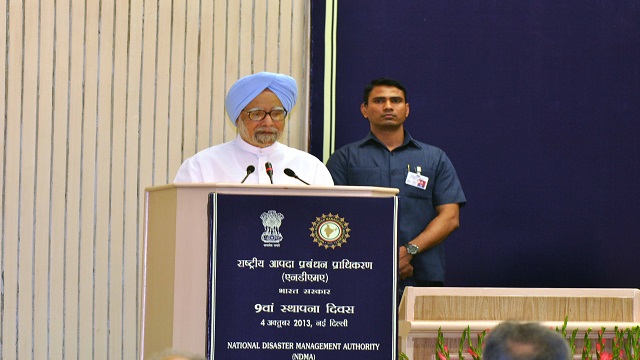Addressing the 5th meeting of the National Disaster Management Authority (NDMA) here, the prime minister stressed the need to improve the country’s disaster management capabilities.
India needs to mainstream disaster risk reduction strategies into its development programmes as extreme weather events are on the rise, Prime Minister Manmohan Singh said Monday.
Addressing the 5th meeting of the National Disaster Management Authority (NDMA) here, the prime minister stressed the need to improve the country’s disaster management capabilities.
The meeting was held to review the devastating Uttarakhand floods of June and the cyclone Phailin which battered Odisha and Andhra Pradesh this month.
“We are aware that the world over, extreme weather events are on the rise,” he said. “Such events impact the poor and marginalised people in a disproportionate manner.
“It is therefore all the more necessary that we quickly improve our disaster management capabilities.
“Every rupee spent on disaster preparedness is a saving of expenditure on post disaster relief, rehabilitation and reconstruction measures.”
Calling upon the NDMA and other agencies to lay greater emphasis on disaster preparedness, the prime minister said: “Disaster risk reduction strategies therefore need to be mainstreamed into our developmental programmes and policies.
“Our early warning systems and response mechanisms should be strengthened further so that we are able to minimize the negative impact of disasters.”
Manmohan Singh said the Uttarakhand floods severely tested the efficacy of India’s disaster response mechanisms and there were important lessons to be learnt from the rescue and relief operations that followed.
Heavy rains followed by flash floods in the Kedarnath region of Uttarakhand killed hundreds of people and caused widespread destruction in the hilly region.
The prime minister lauded the response to Phailin cyclone which helped in saving lives of thousands of people — as one million people in the coastal belt were evacuated before it struck.
-IANS





